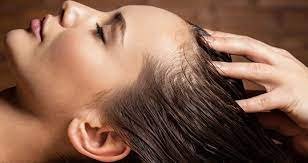Recover Hair Without a Hair Transplant With Safe Treatment

Without Hair Transplant Safe Treatment
Recover Hair Without a Hair Transplant With Natural And Safe Treatment
Without Hairtransplant Safe Treatments
Reclaim Your Hair: Natural and Safe Treatments for Hair Recovery
Recover Hair Without a Hair Transplant With Safe Treatment
Are you tired of seeing more hair on your pillow than on your head? Hair loss can be a distressing experience for both men and women, impacting self-esteem and confidence. While hair transplants may seem like a quick fix, there are natural and safe alternatives to help you reclaim your hair without undergoing surgery. In this guide, we’ll explore some effective methods for hair recovery that you can try in the comfort of your own home.
Understanding Hair Loss
Recover Hair Without a Hair Transplant With Safe Treatment
Before delving into treatments, it’s essential to understand the common causes of hair loss:
-
- Genetics: Family history plays a significant role in hair loss, with male and female pattern baldness being the most common genetic factors.
-
- Hormonal Changes: Hormonal imbalances due to pregnancy, menopause, or thyroid disorders can contribute to hair loss.
-
- Stress: Physical or emotional stress can trigger hair shedding, leading to temporary hair loss.
-
- Nutritional Deficiencies: Inadequate intake of essential nutrients like vitamins, minerals, and proteins can weaken hair follicles, causing them to shed prematurely.
-
- Medical Conditions: Certain medical conditions such as alopecia areata and scalp infections can result in hair loss.
Natural Treatments for Hair Recovery
-
- Healthy Diet: A balanced diet rich in vitamins, minerals, and proteins is crucial for healthy hair growth. Incorporate foods like leafy greens, nuts, eggs, and fish into your meals to provide essential nutrients to your hair follicles.
-
- Scalp Massage: Regular scalp massages can improve blood circulation to the hair follicles, promoting hair growth. Use natural oils like coconut oil or almond oil and gently massage your scalp in circular motions for a few minutes each day.
-
- Essential Oils: Certain essential oils have been shown to stimulate hair growth and improve hair health. Try massaging a few drops of rosemary, peppermint, or lavender oil diluted in a carrier oil onto your scalp regularly.
-
- Herbal Remedies: Herbal supplements like saw palmetto and ginseng have been traditionally used to support hair growth by blocking the conversion of testosterone into dihydrotestosterone (DHT), a hormone linked to hair loss.
-
- Lifestyle Changes: Reduce stress levels through relaxation techniques such as yoga, meditation, or deep breathing exercises. Additionally, avoid excessive heat styling and harsh chemical treatments that can damage the hair shaft and lead to breakage.
-
- Scalp Microneedling: Microneedling involves using a derma roller with tiny needles to create micro-injuries on the scalp, which stimulates collagen production and enhances the absorption of topical treatments, promoting hair growth.
-
- Supplements: Consider taking supplements like biotin, vitamin D, and iron, which are essential for maintaining healthy hair growth. Consult with a healthcare professional before starting any new supplement regimen.
-
- Laser Therapy: Low-level laser therapy (LLLT) devices, such as laser caps or combs, can help stimulate hair follicles and promote hair growth when used consistently over time.
Conclusion
While hair loss can be a challenging issue to address, there are natural and safe treatments available that can help you reclaim your hair without resorting to invasive procedures like hair transplants. By adopting a holistic approach that focuses on nourishing your body, reducing stress, and stimulating hair follicles, you can support healthy hair growth and maintain a full, luscious mane. Remember to be patient and consistent with your chosen treatments, as results may take time to manifest. If you have any concerns about your hair loss or are unsure about which treatment option is best for you, don’t hesitate to consult with a healthcare professional or dermatologist for personalized advice.
